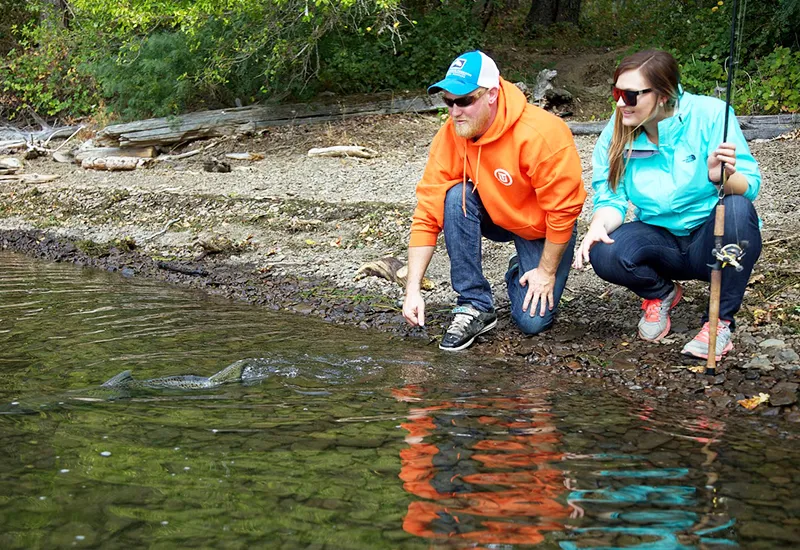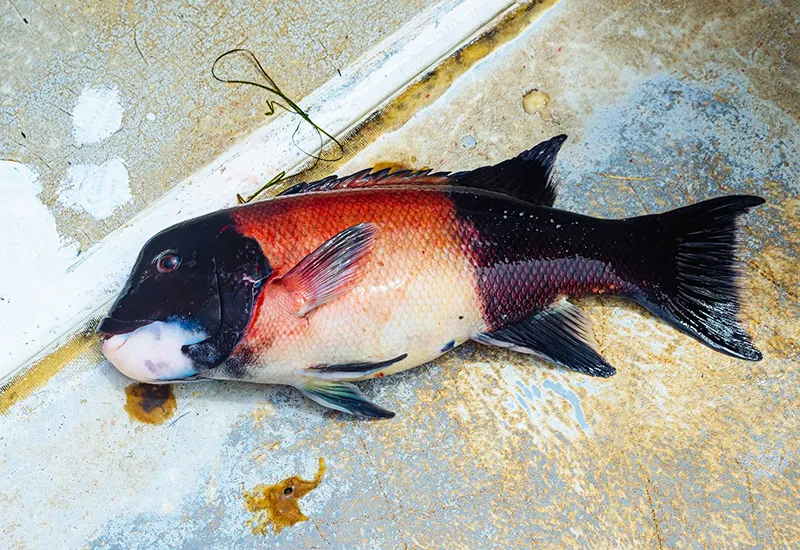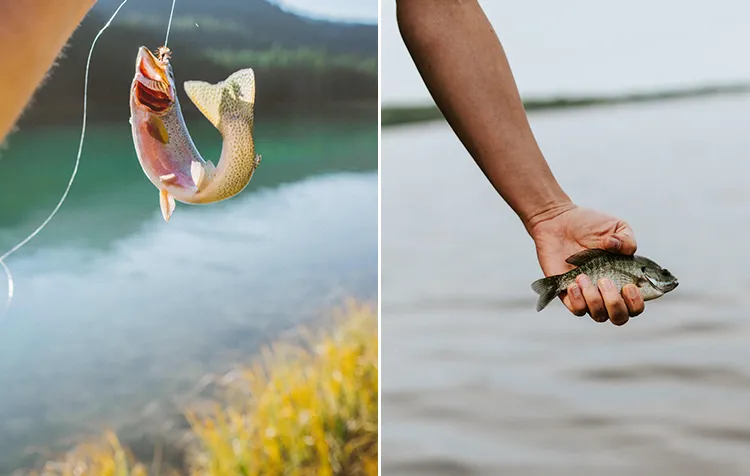Want to learn more about catch and release and whether it's legal to catch fish and then release them back into the water? Then you are exactly right here! Fishing is a passionate hobby for countless people, but also a deadly one for the animals. With catch and release, the fish is at least released - but this fishing method also raises ethical questions.
In this article I would like to give you everything you need to know about catch and release - from the definition, to the ban and animal cruelty, to the penalty that anglers would have to expect. Let's go!
Here you can find a short overview in advance:
Definition: What is catch and release in fishing?

Catch and release in angling is basically understood as the Catch and release fishes. So the caught fish is first taken out of the water and, for example, measured, weighed and photographed - and then put back in.
While fishing originally had the sole purpose of providing food, nowadays for many people it is a popular pastime and sports activity, where the fun is in the foreground.
Catch and release is therefore also called fun fishing and means that you fish with the aim, for example, to take a picture with the caught fish and then release it again. In such a case, the fishing then serves mainly for the entertainment and amusement of anglers:inside.
Tip: Can you Love animals but still eat them? In the linked blog article I have dealt with exactly this question. Feel free to have a look there as well!
Prohibition: What law prohibits the catch and release of fish?
The deliberate catch and release of fish for personal amusement is prohibited in Germany.
The Animal Protection Act writes in § 17 stipulates that no person shall cause prolonged or repetitive pain or suffering to any vertebrate animal - and that those who kill a vertebrate animal without reasonable cause.
Intentions to eat the animal or to water fish would be "reasonable" reasons under current law - but fun fishing would not. Catch and release is therefore a clear violation of the Animal Welfare Act - and is only allowed if a particular fish is below the minimum size or was caught during the closed season.
How do other countries handle this? In Norway, the legislation on catch and release is similar - but in countries like France or the USA, for example, it is allowed.
Reasons: Why is catch and release animal cruelty and banned?

Catch fish and release them again sounds quite animal friendly at first - at least more animal-friendly than slashing and killing them. However, catch and release is mainly for personal amusement (e.g. the joy of catching, as well as photographing and sharing the pictures on social media) and is therefore absolutely unnecessary. In addition, anglers:inside can not guarantee that the fish survive.
Catch and release is not only due to the lack of necessity, but also for the following reasons Cruelty to animals and forbidden:
- Pain sensation: The Study situation is clear - fish have a complex nervous system, so they are sentient creatures and, like us humans, can suffer pain. They have a right to protection and integrity, and since they have no voice, we must preserve this right for them.
- Pure torture: Fish are speared and torn from their habitat. This causes great stress, which is further aggravated by the temperature difference between water and air, the drill and winching on the hook, and the animals' shortness of breath.
- Renewed catch possible: It is more common for fish to experience these ordeals more than once. This is recognizable by the scars on the body of the animals.
- Low chance of survival: Traumatized or injured fish become easier prey for predators. In addition, touching the fish can lead to subsequent infections or even fungal growth, resulting in gradual death. Studies show that about 40 percent of fish released die as a result of catch and release.
Penalty: What penalties do anglers face for catch and release?
Now you know why catch and release is considered a punishable criminal act in Germany. Anyone who nevertheless catches fish in secret for fun and then releases them back into the water is therefore committing a criminal offense.
But what exactly is the penalty for unlawful catch and release? Prosecutions are difficult because both the release and the release must be documented - but if you are caught, you will be fined according to the Animal Welfare Act. imprisonment for a term of up to three years or with a fine calculate.
Catch and release is animal cruelty and not a hobby
To believe that fish are worth less than other animals is Speciesism. They are sentient beings like you and me - and do not serve our entertainment. However, Catch and Release is aimed at personal entertainment. and is therefore, for good reasons, cruelty to animals and not a passionate hobby.
"Animal protection is education to humanity."
Albert Schweitzer
In conclusion, I would like to give you a few more additional blog posts for you that might also be of interest to you:
Do you have any questions, tips or your own experiences with fishing and releasing fish that you would like to share? Then I look forward to your comment.
Be always kind to animals,

PS: In the next Blgo article you will now learn about my personal reasons to live vegan. I am sure you will represent many of them as well.









